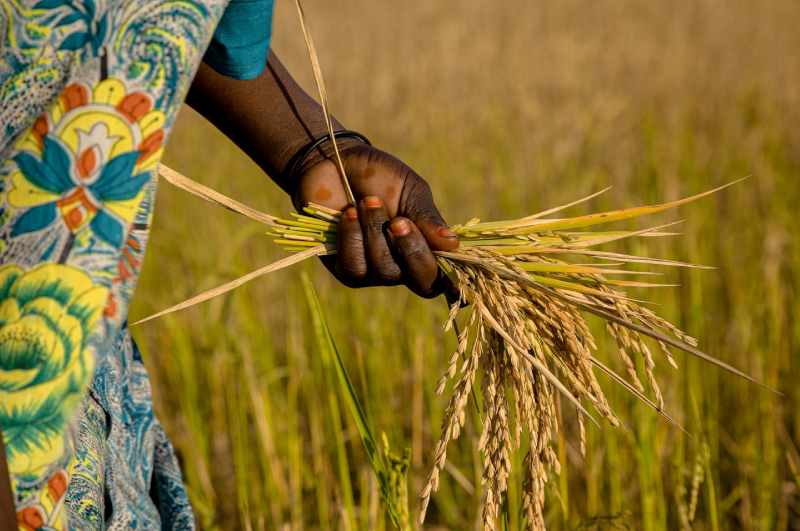

The UN Food Systems Summit+2 Stocktaking Moment (UNFSS+2), is currently underway at the Food and Agriculture Organization (FAO) of the United Nations headquarters in Rome, from 24th to 26th July 2023.
The Summit aims to evaluate the progress made since the initial UN Food Systems Summit in 2021 and expedite efforts in reshaping global agrifood systems.
In his keynote speech, the UN Secretary-General António Guterres, the convenor of the event, noted that “Over 100 countries have submitted voluntary progress reports on food systems transformation. Countries are taking decisive steps to reflect this priority in national and sub-national laws, policies and programming,” adding that there is also progress on data to shape policies and partnerships.
The Summit comes a few weeks after the launch of the annual State of Food Security and Nutrition in the World (SOFI) report, a joint publication by the UN Food and Agriculture Organization (FAO), International Fund for Agricultural Development (IFAD), UNICEF, World Food Programme, and World Health Organization (WHO).
The report provides a comprehensive overview of these complexities showing that the food security and nutrition situation remained grim in 2022. The 2023 edition of the report reveals that between 691 and 783 million people faced hunger in 2022, with a mid-range of 735 million. This represents an increase of 122 million people compared to 2019, before the COVID-19 pandemic. This also translates into roughly 9.2 percent of the global population experiencing hunger (measured as the prevalence of undernourishment) in 2022, up from 7.9 percent prior to the outbreak of the COVID-19 pandemic.
Africa, although not the region with the absolute highest number of undernourished individuals, distressingly holds the highest proportion of citizens without sufficient access to calories. The SOFI report reveals that Africa's prevalence of undernourishment rose from 19.4 percent in 2021 to 19.7 percent in 2022. This alarming trend has resulted in 11 million more people facing hunger since 2021 and over 57 million since the pandemic began.
Sub-Saharan Africa finds itself in the eye of a "perfect storm" of crises — a complex mix of food, fuel, and fertilizer shortages, compounded by the impacts of the Ukraine war, the COVID-19 pandemic's aftermath, rising inflation, soaring debt, and escalating climate crises. This storm has left at least one in five Africans going to bed hungry and an estimated 134 million people facing acute food insecurity.
Given the concerning trends highlighted by the SOFI report, Africa's food security situation undeniably needs urgent and focused attention by the Summit. With the African continent suffering the most from these systemic issues, the Summit will serve as an essential opportunity to prioritise decisive action for Africa's food systems. Africa's plight emphasizes the critical need for a profound transformation of our food systems. Both public and private sectors must invest in research and development to drive innovative technologies' adoption. Policymakers and the international development community can support agri-food systems in harnessing urbanization opportunities while mitigating its negative effects.
The reality is stark. The urgency is palpable. As the 2023 SOFI report underscores, it's time to transform our global food systems to ensure everyone, everywhere, has access to safe, nutritious food — starting with the most vulnerable in Africa.
Hence, the pledges to be declared during the Summit should establish a trajectory for a comprehensive shift in global food production and consumption methods. This commitment holds the potential to construct a worldwide food system that addresses inequalities and actively tackles the pressing challenges of climate change, pollution, and biodiversity decline instead of exacerbating them.
Related Articles
Select Payment Method
Pay by bank transfer
If you wish to make a donation by direct bank transfer please contact Fr Paul Hamill SJ treasurer@jesuits.africa. Fr Paul will get in touch with you about the best method of transfer for you and share account details with you. Donations can be one-off gifts or of any frequency; for example, you might wish to become a regular monthly donor of small amounts; that sort of reliable income can allow for very welcome forward planning in the development of the Society’s works in Africa and Madagascar.
Often it is easier to send a donation to an office within your own country and Fr Paul can advise on how that might be done. In some countries this kind of giving can also be recognised for tax relief and the necessary receipts will be issued.

